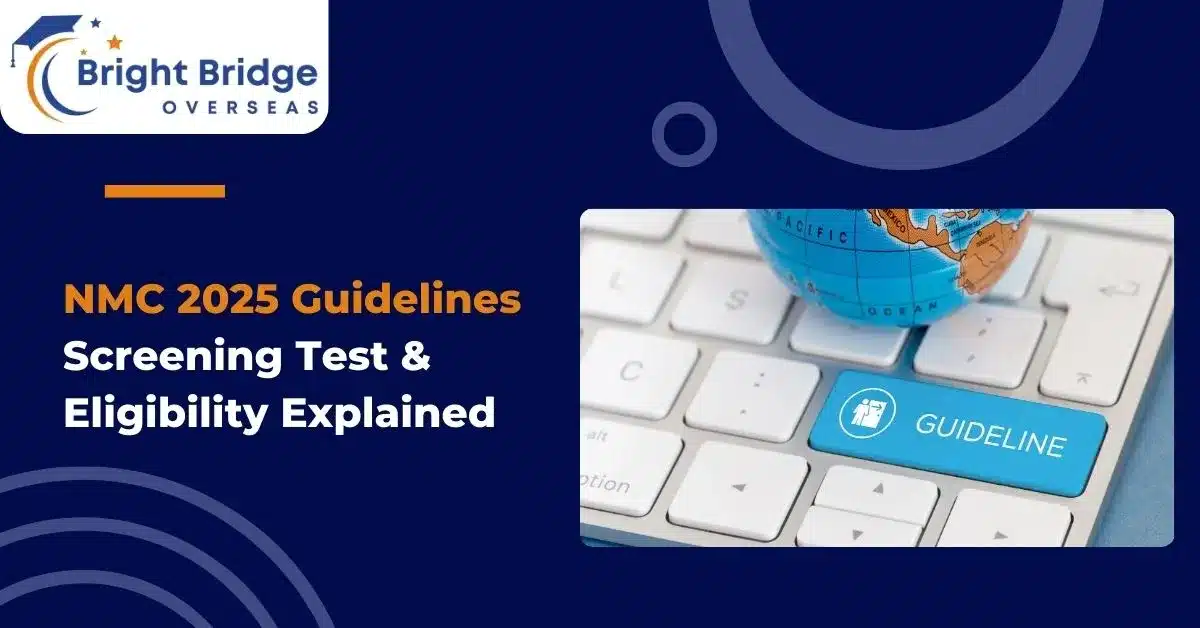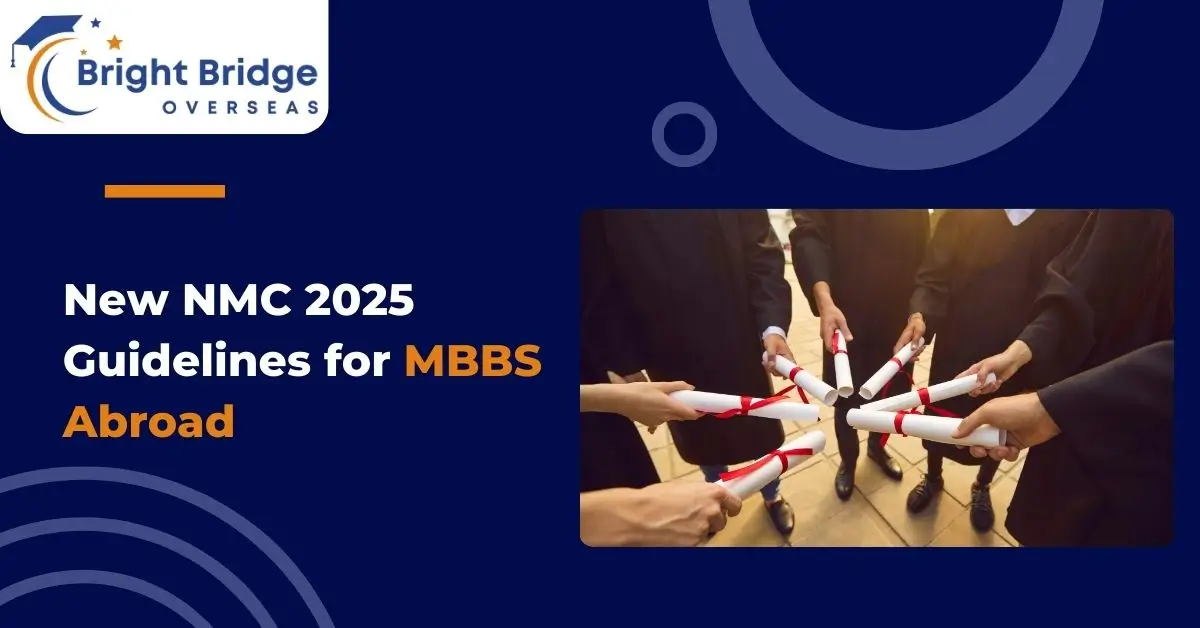Every year, thousands of Indian students dream of becoming doctors and seek medical education abroad.…

The National Medical Commission (NMC) has outlined stringent guidelines for Indian citizens and Overseas Citizens of India (OCI) pursuing MBBS or equivalent medical courses at foreign institutions. These regulations, particularly the Screening Test requirements, aim to ensure that foreign medical qualifications meet Indian standards and that Indian students are adequately prepared for medical practice upon their return.
Screening Test for Indian Students and OCI Holders
Indian citizens and OCI holders who have obtained a primary medical qualification from an institution outside India must pass a screening test in order to register with the NMC or a State Medical Council. The test is a crucial part of the process for Indian medical students who wish to practice medicine in India after completing their studies abroad. As per the regulations, those who wish to obtain provisional or permanent registration with the NMC must qualify this screening test, which is conducted as per a schedule announced by the prescribed authority.
Eligibility Criteria for Appearing in the Screening Test
To be eligible for the screening test, candidates must meet the following criteria:
- Citizenship Requirements: Candidates must be Indian citizens or OCI holders and must possess a medical qualification that is recognized by the country where it was awarded.
- Eligibility Certificate: Before taking admission in an overseas medical institution, students must have obtained an Eligibility Certificate from the NMC (or the erstwhile Medical Council of India), as per the regulations for undergraduate medical courses. This requirement applies to students who obtained their medical qualifications from foreign institutions after 15th March 2002.
- NEET Qualification: All Indian citizens and OCI holders intending to pursue MBBS abroad must mandatorily qualify for the National Eligibility cum Entrance Test (NEET), as per the NMC’s regulations. The NEET result serves as the Eligibility Certificate, and it is valid for three years from the date of declaration of results. This result entitles students to pursue MBBS or equivalent medical courses, including pre-medical or language courses, followed by the MBBS program.
- Exemptions: Candidates who hold an undergraduate medical qualification from Australia, Canada, New Zealand, the UK, or the USA, along with a recognized postgraduate qualification from one of these countries, are exempt from the screening test. In such cases, candidates can directly apply for provisional or permanent registration without taking the Screening Test.
The Screening Test: Format and Process
The screening test for medical students who have obtained their qualifications from foreign institutions is designed to evaluate whether the student meets the academic and professional standards required to practice medicine in India. The examination follows a structured process as outlined by the National Medical Commission. The results of the test are communicated to the candidates, the NMC, and the State Medical Councils. If a candidate fails the test, they will be notified, and unsuccessful candidates must reattempt the examination as per the NMC’s guidelines.
Key Points to Remember
- The NMC no longer endorses any list of foreign medical institutions. Students are advised to directly confirm the fee structure, course details (duration, content, and internship), and other relevant information with the institutions before taking admission.
- The NMC’s guidelines ensure that the medical education standard of foreign institutions aligns with India’s requirements for practicing doctors.
- The screening test is part of a broader set of regulations to ensure Indian students are well-prepared to practice medicine upon returning to India.
Conclusion
The NMC’s 2025 guidelines for MBBS abroad provide a clear framework for Indian students and OCI holders aspiring to study medicine outside India. It ensures that all foreign medical programs meet the necessary standards for Indian students to qualify and practice medicine in India. By following the guidelines, including obtaining an Eligibility Certificate, passing the NEET, and completing the screening test, students can ensure that their qualifications are recognized in India.
This process maintains the integrity of the medical profession and safeguards the interests of both students and patients in India.
For more detailed information, students are advised to visit the National Medical Commission‘s official website or consult with an authorised education consultancy to ensure compliance with all necessary regulations.

